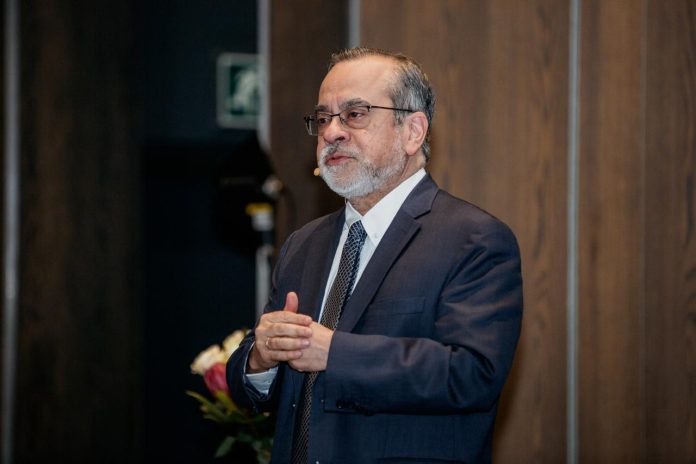Diplomatic Inside
Education experts, policymakers, and researchers convened on Wednesday in Johannesburg for the 2030 Reading Panel Conference, a critical gathering aimed at addressing South Africa’s reading crisis and improving literacy outcomes by 2030. Held in Melrose Arch under the chairmanship of former Deputy President Dr Phumzile Mlambo-Ngcuka, the panel is committed to ensuring that by 2030, all children in South Africa can read for meaning in both their home language and English by the age of 10.
The event featured a keynote address by Jaime Saavedra, former Peruvian education minister and current Director of Human Development for Latin America and the Caribbean at the World Bank, who explored strategies for large-scale educational transformation. Following his presentation on Peru’s education reform, Saavedra answered questions from Diplomatic Inside on South Africa’s education landscape and the challenges ahead.
Diplomatic Inside: Mr. Saavedra, what are your key takeaways from this event?
Jaime Saavedra: It has been great to participate in this event organized by the 2030 Reading Panel, which is trying to advocate for better and higher quality public education here in South Africa. And we have had a very good discussion, trying to see different experiences that could illuminate and illustrate the reforms that are needed here in South Africa. In particular, we covered the case of the education reform that happened in Peru, that was focused on improving learning standards, and in particularly make the case of the importance of teachers, and provide them with the support, and incentives that they need in order to perform better the extremely complex and challenging job that they have.
Diplomatic Inside: What are some of the critical aspects of teacher support that you highlighted in your presentation?
Jaime Saavedra: We discussed a lot about how critical it is to invest in coaching of teachers, making sure they have the right materials, that they have lesson plans, and in order to perform and have a better interaction with students. And finally, the importance of assessments, the importance of having good data at the classroom level so that all teachers or principals and all parents, they know exactly what they need to do. They know exactly what’s the level of learning of students and in which way they can support them better. It’s critical to use data intensively so that we know where the system are and where is that we need to continue investing in order to ensure that all children have the foundational skills that they need.
Diplomatic Inside: South Africa’s matric results showed an improvement this year. How do you assess the country’s education system overall?
Jaime Saavedra: So South Africa has been showing some improvements in learning, but as many other middle-income countries, there has, there’s a need to be more efficient, in terms of how our resources are used. And continue improving learning, which is very important is that now the focus of all the education community is not necessarily on access. Kids are in school, but the focus is on learning and improving the quality of what’s happening in the classrooms.
Diplomatic Inside: Language policy in education is a significant topic in South Africa. How do you view the country’s approach to bilingual education?
Jaime Saavedra: Yeah, South Africa, like many other countries in the region and similar to South Asian and Latin American countries face the challenge that kids have to be taught in their native tongue. That’s the most important thing, particularly in the early years. But obviously that poses a challenge to education systems, right? You need to teach in a native tongue, and eventually kids have to be taught in English. So, a large discussion about what are the challenges that the country faces on that. Now, South Africa is probably handling that issue much better than many other, many other countries. That definitely is an area in which we need to continue pushing.
Diplomatic Inside: What should be the next steps for South Africa’s education system to ensure further progress?
Jaime Saavedra: The key is to continue investing in teacher development, structured lesson plans, and effective use of data. Ensuring that all children acquire strong foundational literacy and numeracy skills should remain the top priority. South Africa has already made significant strides, but sustained commitment to evidence-based reforms will be essential to achieving long-term improvements in educational outcomes.


